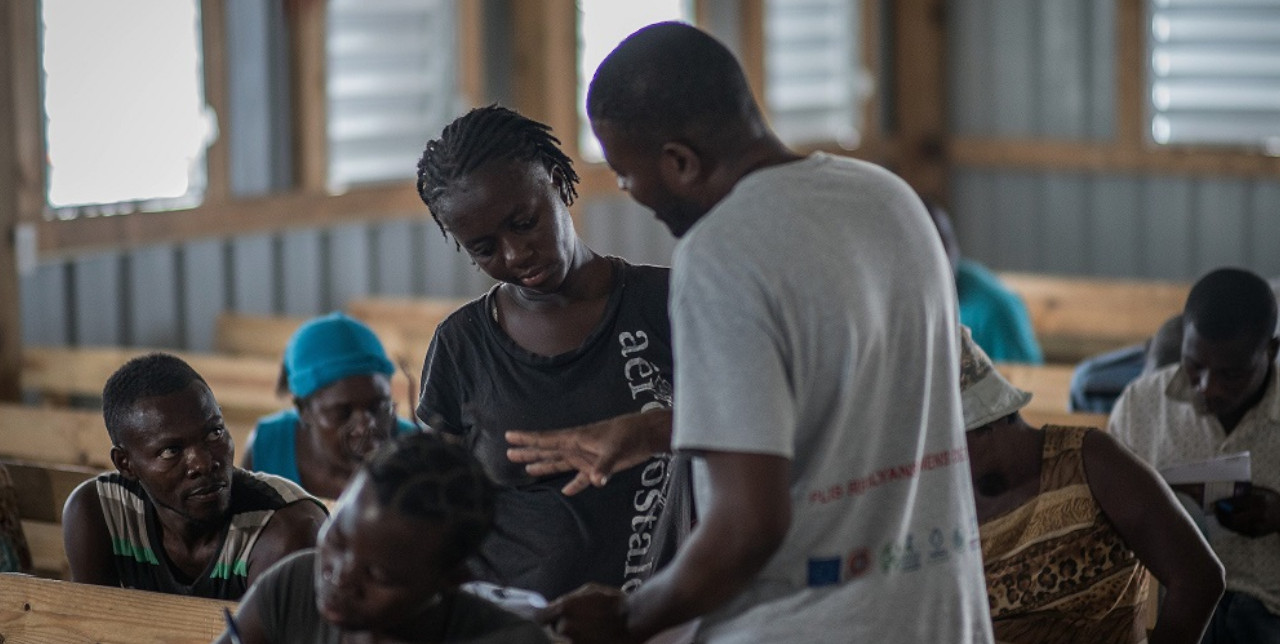23-01-2020 | di COOPI
Early warning system - a solution to drought and food insecurity in Haiti
Since 2014, communities in northwest Haiti, including the municipalities of Bombardopolis and Baie de Henne, have lost livelihoods and crops as a result of prolonged droughts and the devastating effects of Hurricane Matthew.
Strengthening community and institutional resilience and improving the management of Early Warning Systems, in collaboration with the Civil Protection and the National Centre for Food Security, are among the main activities of the project funded by the European Commission (ECHO, Department for Humanitarian Aid and Civil Protection), which COOPI has been implementing since June 2018, in consortium with Oxfam, and from which 30,000 people will benefit.
As Ibrahim Hassan, COOPI Project Leader in Haiti, explains: "Communities in northwest Haiti live off small-scale agriculture and livestock farming and, therefore, exposure to frequent drought significantly undermines agro-pastoral activities. By improving early warning systems, through data collection and sharing, communities and state authorities will be able to develop timely drought contingency plans”.
Data supporting emergency plans’ adaptation in the short, medium and long term are primarily divided into two categories: on the one hand, hydro-meteorological information (frequency and intensity of rainfall, temperature and humidity levels, flow of watercourses); on the other hand, Household Economy Approach parameters, which analyse the livelihoods available to the population, in particular food needs, necessary for their survival.
With the project "Improving drought resilience and food insecurity response of vulnerable communities in the Lower Northwest and Upper Artibonite in Haiti", which will end in February 2020, COOPI will contribute to facilitate the Haitian State in the collection and interpretation of these data, thus providing a rapid, appropriate and sustainable response to emergency.




 Haiti
Haiti